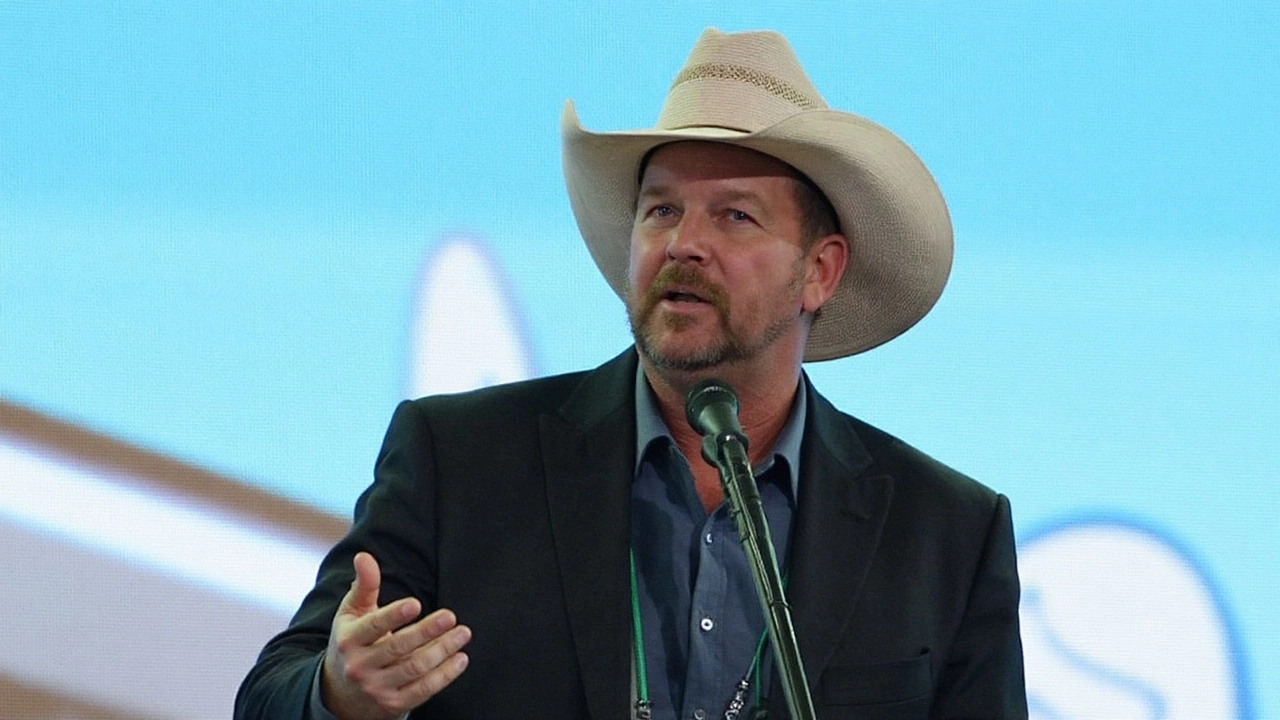The biggest name in country music is now at the center of a high-stakes legal fight. A former hair and makeup artist identified in court papers as “Jane Roe” has sued Garth Brooks, alleging rape in a Los Angeles hotel room in 2019 and a wider pattern of sexual harassment. Brooks flatly denies it all, says he was threatened to pay millions, and has already filed his own lawsuit in Mississippi to shut the claims down. With a motion to dismiss now on the calendar in Los Angeles, the case is poised to test reputations, legal tactics, and the limits of celebrity crisis management.
The lawsuit lands as Brooks is set to headline the British Summer Time Festival in London in 2026. For now, that booking stands. Behind the scenes, lawyers on both sides are preparing for a crucial winter hearing that could decide whether the case moves ahead to discovery or stops before it really starts.
What the lawsuit alleges
Roe says she began working in 1999 as a hair and makeup artist for Trisha Yearwood—Brooks’s wife, a star in her own right—and later joined Brooks’s team directly in 2017. The complaint, filed under a pseudonym to protect her privacy, focuses on an alleged incident in May 2019. According to her account, Brooks flew her to Los Angeles to style him for an event and then raped her in his hotel room. She says he later groped her on other occasions and made repeated comments about a threesome with his wife.
The filing paints a picture of an unhealthy workplace dynamic: late-night conversations she describes as sexual, explicit messages she says he sent, and even a claim that Brooks took her phone without permission to delete messages. Roe, who later moved to Mississippi in 2021, frames the allegations as part of a longer timeline that began when she was working on Yearwood’s team and deepened once she transitioned to working with Brooks directly.
Brooks rejects every claim. Through representatives, he says he has spent months swatting away threats and “tragic tales” about what would happen if he didn’t pay up, characterizing the demand as hush money. He says agreeing to any payment would be like admitting to acts he calls unimaginable and false. His response hasn’t been subtle or cautious; he has positioned the allegations as a straight extortion attempt.
This is a civil case, not a criminal one. No criminal charges have been announced. In civil court, the case turns on whether the plaintiff can prove her allegations under the civil standard and whether the suit satisfies the legal hurdles of timing and venue. Roe’s filing, handled by a legal team known for high-profile misconduct cases, argues that Brooks’s alleged conduct happened in California and that federal court in Los Angeles is the proper venue. The defense counters that the case is defective and should be tossed now.
Roe’s lawyers say Brooks tried to “silence” their client by filing a preemptive complaint under the name “John Doe” in Mississippi. That filing, dated September 13, 2024, asks for damages, a declaration that Roe’s allegations are untrue, and a court order stopping her from moving forward. To her legal team, that move looks like an effort to change the playing field and discourage her from filing where the alleged assault took place.
For readers tracking the fast-moving timeline, here are the key beats as laid out in court papers and public statements:
- 1999: Roe starts working as a hair and makeup artist for Trisha Yearwood.
- 2017: Roe begins working directly for Brooks.
- May 2019: Roe alleges Brooks raped her in a Los Angeles hotel room while she was in town to style him for an event.
- 2019–2021: Roe alleges ongoing harassment, including groping and explicit messages.
- 2021: Roe relocates to Mississippi.
- September 13, 2024: Brooks files a preemptive suit in Mississippi as “John Doe,” denying misconduct and seeking damages and an injunction.
- Fall 2024: Roe files her civil suit in Los Angeles federal court.
- December 8, 2024: Hearing set in Los Angeles on Brooks’s motion to dismiss.
- Summer 2026: Brooks is scheduled to headline the British Summer Time Festival in Hyde Park, London.
Nothing in the complaints has been proven. The filings present starkly different stories: one of exploitation and coercion, and one of a celebrity resisting a cash-driven smear. The court’s first real test comes at the dismissal hearing.

How both sides are fighting it—and what comes next
Brooks’s public stance is simple: deny, push back, and frame the case as a shakedown. His Mississippi complaint is part of that strategy. By filing first, he sought to control venue and narrative, and to secure a formal ruling that declares Roe’s claims false. Plaintiffs often call this “anticipatory litigation”—the accused tries to get to court before accusations become public and before a different court claims jurisdiction.
In Los Angeles, Brooks’s team has filed a motion to dismiss. That motion is a gatekeeping step: it argues that even if the allegations are taken as true for procedural purposes, the complaint still fails under the law. Common targets include jurisdiction (is this the right court?), venue (is this the right place?), and timeliness (did the plaintiff file on time under the statutes of limitation?). Defense teams sometimes argue that the complaint lacks specific facts or relies on conclusions without enough detail. If the judge agrees, he can dismiss the case—sometimes with a chance to amend, sometimes with prejudice. If he denies the motion, the parties head into discovery, where claims are tested against emails, texts, travel logs, hotel records, and testimony under oath.
Roe’s lawyers have signaled they are ready for that stage. Their public statement praises her courage and places the case in a broader pattern of misconduct across industries, pointing out that country music is not immune to the same abuses alleged in corporate offices, film sets, and recording studios. They also accuse Brooks of trying to muzzle their client through his preemptive lawsuit.
Two big legal questions loom. First, where should this be fought? Roe says Los Angeles, because that’s where the alleged assault happened and where she says some of the harassment unfolded. Brooks filed in Mississippi, where Roe now lives, and describes himself in his filing as a Tennessee resident. Jurisdictional chess like this is common when parties live in different states and the alleged misconduct spans multiple places.
Second, what about timing? Civil sexual assault claims are subject to statutes of limitations that vary by state and have been updated in recent years. California has passed laws expanding timelines for some survivors to file civil suits. Whether those rules apply here—and how—will be a point of argument. Expect the defense to press the clock; expect the plaintiff to point to legislative changes and the alleged ongoing nature of the harassment.
The evidence fight will be central if the case survives. Roe says there were explicit text messages and that Brooks tried to delete them by taking her phone. If any messages exist—on devices, in backups, or on carrier logs—they will move from allegation to exhibit. Hotel booking data, flight records, and witness testimony about travel and work schedules also tend to matter in cases like this. So do any contemporaneous disclosures: who, if anyone, did Roe tell at the time? Did she keep notes, emails, or messages mentioning what she says happened? The same questions apply to the defense: who can confirm Brooks’s whereabouts, his schedule, and his interactions with staff on the dates in question?
There is also the workplace angle. Roe’s role began with Yearwood and then expanded to Brooks. That layered professional relationship can complicate policies and reporting channels. Did the team have a formal HR process? Was there a line manager? In entertainment, crews often work on the road, around tight schedules and late hours, with blurred lines between personal and professional spaces. Courts and juries listen closely to how teams handled complaints—if any were made—and how power imbalances may have played out.
Public relations matter too. Brooks is one of the best-selling acts in country music history. He has a broad fan base, a long catalog, and a careful brand built across decades. The “hush money” framing is meant to speak to that audience: he is positioning himself as someone refusing to be bullied. Roe’s legal team is talking to a different audience—survivors and those who believe the industry too often protects stars. Both strategies are about shaping public perception now, before a judge rules or a jury hears a word of testimony.
It’s notable that this is playing out while Brooks is already booked for a major 2026 show in London’s Hyde Park. Festival organizers tend to monitor, not jump. Contracts often have morality clauses, but every deal is different. As of now, his slot stands. If the case advances, the promotional calendar and legal calendar could start to overlap, raising practical questions about travel, depositions, and media appearances.
The December 8 hearing in Los Angeles is the first big legal mile marker. If the judge grants the motion to dismiss, the court could close the case or give Roe a chance to amend her complaint. If the judge denies the motion, the parties will head into discovery. That would mean document exchanges, depositions under oath, and expert work that could stretch well into 2025. Either way, Brooks’s Mississippi suit remains its own track, and the two cases could collide in unexpected ways as each court asserts its authority.
For now, the filings lay out two incompatible stories. Roe describes a boss who crossed a line in a hotel room and kept crossing it after. Brooks describes a famous target who refused to pay for silence and is now fighting to clear his name. The courts will decide which story survives the early tests, and whether a jury will ever hear the rest.
Key things to watch in the weeks ahead:
- What the judge in Los Angeles says about jurisdiction, venue, and timeliness at the December 8 hearing.
- Whether Roe’s team moves to consolidate or counter Brooks’s Mississippi filing—and which court moves faster.
- Any new filings that attach exhibits, like texts or travel logs, which could shift leverage quickly.
- Statements from festival organizers or sponsors as the 2026 show draws closer.
Until then, both sides are locked in: one trying to tell the story of workplace abuse and a violent night in Los Angeles; the other insisting this is a pressure campaign to extract money from a star with everything to lose.

Arlen Fitzpatrick
My name is Arlen Fitzpatrick, and I am a sports enthusiast with a passion for soccer. I have spent years studying the intricacies of the game, both as a player and a coach. My expertise in sports has allowed me to analyze matches and predict outcomes with great accuracy. As a writer, I enjoy sharing my knowledge and love for soccer with others, providing insights and engaging stories about the beautiful game. My ultimate goal is to inspire and educate soccer fans, helping them to deepen their understanding and appreciation for the sport.
view all postsWrite a comment